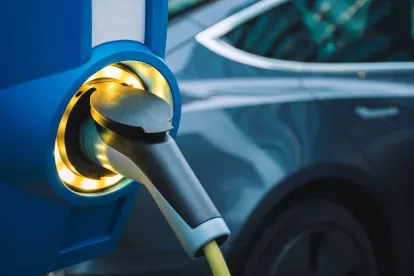As the Internal Revenue Service (“IRS”) begins issuing guidance for every tax provision of the Inflation Reduction Act (“IRA”), efforts have ramped up by foreign governments and automakers on the strict battery component sourcing requirements under the 30D Clean Vehicle Credit program under the law. Under the 30D provision, for an electric vehicle (“EV”) to qualify for the full $7,500 rebate, it must adhere to strict U.S. final assembly and U.S. battery component requirements.
Specifically, for consumer EVs to qualify for the entire $7,500 rebate, at least 40 percent of the critical minerals used in the battery must have been extracted or processed in the U.S. or in a country with which the U.S. has a free trade agreement, and at least 50 percent of the battery components must have been manufactured or assembled in North America. Both of the percentage requirements for these restrictions are set to increase by 10 percent annually starting in 2024.
Soon after the IRA was signed into law, foreign auto manufacturers and foreign governments, most notably Japan and South Korea, have been pressuring Washington, D.C. to reverse or relax these “Made in America” requirements, stating that these restrictions would effectively inhibit all consumer EVs currently on the market from qualifying for the $7,500 tax rebate. As a contingency plan, these groups have also begun lobbying to expand the 45W Qualified Commercial Clean Vehicle Credits to apply to vehicles typically not considered “commercial”. This would include vehicles purchased for rental fleets, leases, and rideshare services. The 45W commercial EV credit is not subject to the same, stringent U.S. component standards required for consumer EVs under the 30D program. The IRS requested comments on section 45W, which were due December 3, 2022. Formal guidance is forthcoming.
Efforts by foreign governments and automakers to weaken or subvert the U.S. component requirements sparked a strongly worded letter from Senate Energy and Natural Resources Chairman, Senator Joe Manchin to Treasury Secretary, Janet Yellen earlier this week. In no uncertain terms, Chairman Manchin rebuked these efforts and requested that the IRS release final guidance on these provisions with strict adherence to the law and congressional intent.
Specifically, the Chairman stated: “Unfortunately, I have heard that some automakers and foreign governments are asking your agency for a broad interpretation of 45W that would allow rental cars, leased vehicles, and rideshare vehicles (such as those used for Uber and Lyft), a huge piece of the U.S. vehicle market, to be eligible for the full $7,500 commercial vehicle credit as a way to bypass the strict sourcing requirements in the 30D Clean Vehicle Credit (30D). If these vehicles are deemed eligible, I can guarantee that companies will focus their attention away from trying to invest in North America to meet the requirements of 30D and will instead continue with business as usual, putting our transportation sector further at risk. The 45W credit, as the name implies, is intended only for commercial use, and your department must follow congressional intent and release guidance that would ensure 45W will not be used on vehicles that will be leased, rented, or used for ridesharing purposes…Congressional intent in the IRA is crystal clear.” You can read the full letter here.
As the IRS continues to develop and release formal guidance on the interpretation of these and other tax provisions, lobbying efforts in Washington, D.C. will continue to build. In addition, as seen above, Congress, itself, will apply immense pressure on federal agencies to ensure that they are implementing these tax provisions in line with congressional intent. The battle is far from over.



 />i
/>i

